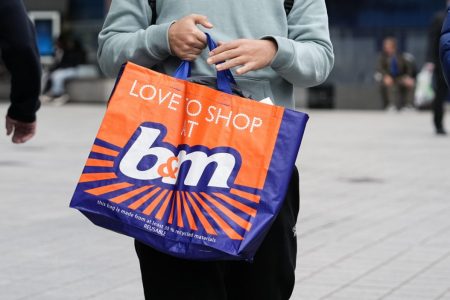Lidl has sparked a chocolate frenzy among its shoppers with a major sale, slashing the prices of popular treats to a mere 20 pence. Social media platforms, particularly the Facebook group Extreme Couponing and Bargains UK, have been abuzz with excited shoppers sharing their bargain hauls. Photos of overflowing baskets and receipts showcasing the unbelievable 20p price tag have been widely circulated. Items included in the offer range from Aero and Milkybar tubes to Cadbury Selection packs, with the deal seemingly available across multiple Lidl locations. The timing of this promotion coincides with other supermarkets offering discounted confectionery, further intensifying the competition for bargain-hunting shoppers.
Amidst the excitement surrounding Lidl’s chocolate sale, another supermarket chain, Sainsbury’s, has also attracted attention for its own discounted confectionery offerings. Large bags of popular holiday treats like Quality Street and Celebrations have been significantly reduced in price, tempting shoppers to stock up on these festive favorites. Interestingly, some shoppers have demonstrated remarkable restraint, opting to store their purchases for future occasions like Easter rather than indulging immediately. This savvy approach demonstrates how consumers are becoming increasingly conscious of maximizing value and planning ahead to stretch their budgets further.
While supermarkets battle it out with attractive deals and discounts, consumer watchdog Which? has declared Aldi the cheapest supermarket of 2024. This accolade comes after a year-long analysis of grocery prices, comparing the cost of a basket of 56 common items across major supermarkets. Aldi consistently outperformed its rivals, including Lidl and Asda, throughout the entire year, offering significant savings for consumers. The research revealed that shoppers choosing Aldi could save an average of £393 annually compared to shopping at the most expensive supermarket, Waitrose.
The price difference between Aldi and Lidl, though relatively small on a per-shop basis, highlights the increasing competitiveness among budget supermarkets. Lidl, while consistently ranking just behind Aldi in the monthly price comparisons, still offers substantial savings compared to traditional supermarkets. The inclusion of loyalty program pricing further complicates the comparison, as Lidl’s prices for loyalty members are closer to Aldi’s standard prices. However, the focus on prices accessible to all customers solidifies Aldi’s position as the overall cheapest option.
Beyond the headline-grabbing discounts on chocolate and the ongoing supermarket price wars, consumers can employ various strategies to further reduce their grocery bills. Utilizing resources like price comparison websites, such as Trolley.co.uk, enables shoppers to identify the best deals across different retailers. Furthermore, opting for supermarket own-brand products often offers significant savings without compromising significantly on quality. Keeping an eye out for yellow sticker discounts, which indicate reduced prices for items nearing their expiration dates or with damaged packaging, can also lead to substantial savings.
Several other money-saving tactics revolve around minimizing food waste and maximizing value. “Odd box” schemes, offered by retailers like Lidl and Sainsbury’s, provide discounted fruits and vegetables that may be slightly misshapen but perfectly edible. Food waste apps like Too Good to Go and Olio connect consumers with businesses looking to offload surplus food at reduced prices or even for free. These initiatives not only help consumers save money but also contribute to reducing food waste and promoting sustainable consumption. By combining these strategies with careful planning and a willingness to explore different options, consumers can significantly reduce their grocery spending and stretch their budgets further.











